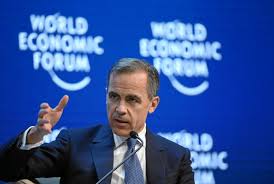Francis Tuschek
In a developing scandal that has captured the attention of mainstream American media and the public, U.S. officials find themselves under fire not for their military actions in Yemen, but for an embarrassing breach of security protocols. The uproar coincides with a renewed U.S. bombing campaign against Yemen that has raised serious ethical questions but has drawn less outrage than the communication blunder itself.
Leading figures in Washington, including National Security Adviser Mike Waltz, Defense Secretary Pete Hegseth, Director of National Intelligence Tulsi Gabbard, and Vice President J.D. Vance, have been implicated in discussing sensitive military strategies through the commercial messaging app Signal, rather than using secure government channels. While Signal offers encryption, cybersecurity experts warn that it’s still vulnerable to external breaches.
The situation escalated when Jeffrey Goldberg, editor-in-chief of The Atlantic, was inexplicably invited to participate in these discussions. Critics argue it is a significant lapse in judgment for officials to share operational data with a journalist. Many view this as a repeat of previous security failures, raising serious questions about the management of sensitive national security matters.
As the Biden administration faces scrutiny, members of the Trump administration have shifted their focus to attacking Goldberg instead of addressing the security lapses. This strategy hopes to redirect attention from the inadequacies of their own administration’s handling of military affairs.
President Trump and other Trump loyalists, rather than confronting the mishap, have rallied around Waltz, calling him a “good man” who will learn from his errors, further underscoring a culture of deflection over accountability within the administration. Meanwhile, Vice President Vance has attempted to downplay any internal disagreements, though his comments during the Signal meeting seemed to contradict this assertion.
The gravity of the situation is deepened by the ongoing human cost of U.S. military actions in Yemen. In just ten days following the renewed airstrikes, reports indicate that at least 79 individuals have been killed, with over 100 injured. These attacks target the Ansar Allah movement, but critics argue that they ultimately harm the Yemeni populace, revealing the destructive nature of American foreign policy that often prioritizes geopolitical objectives over humanitarian concerns.
Furthermore, the scandal has ignited a broader political debate about accountability and ethics in government. Democrats have called for investigations into the leak, while Trump’s allies attempt to exploit the issue to regain political ground.
As the U.S. continues its military campaigns abroad, the focus on the security breach highlights a disturbing trend in which the actions of government officials overshadow the human tragedies resultant from those choices. With the U.S. media landscape increasingly fixated on such breaches rather than the far graver issues of war and intervention, this incident serves as a microcosm of America’s complex relationship with its military commitments and moral responsibilities on the global stage.



